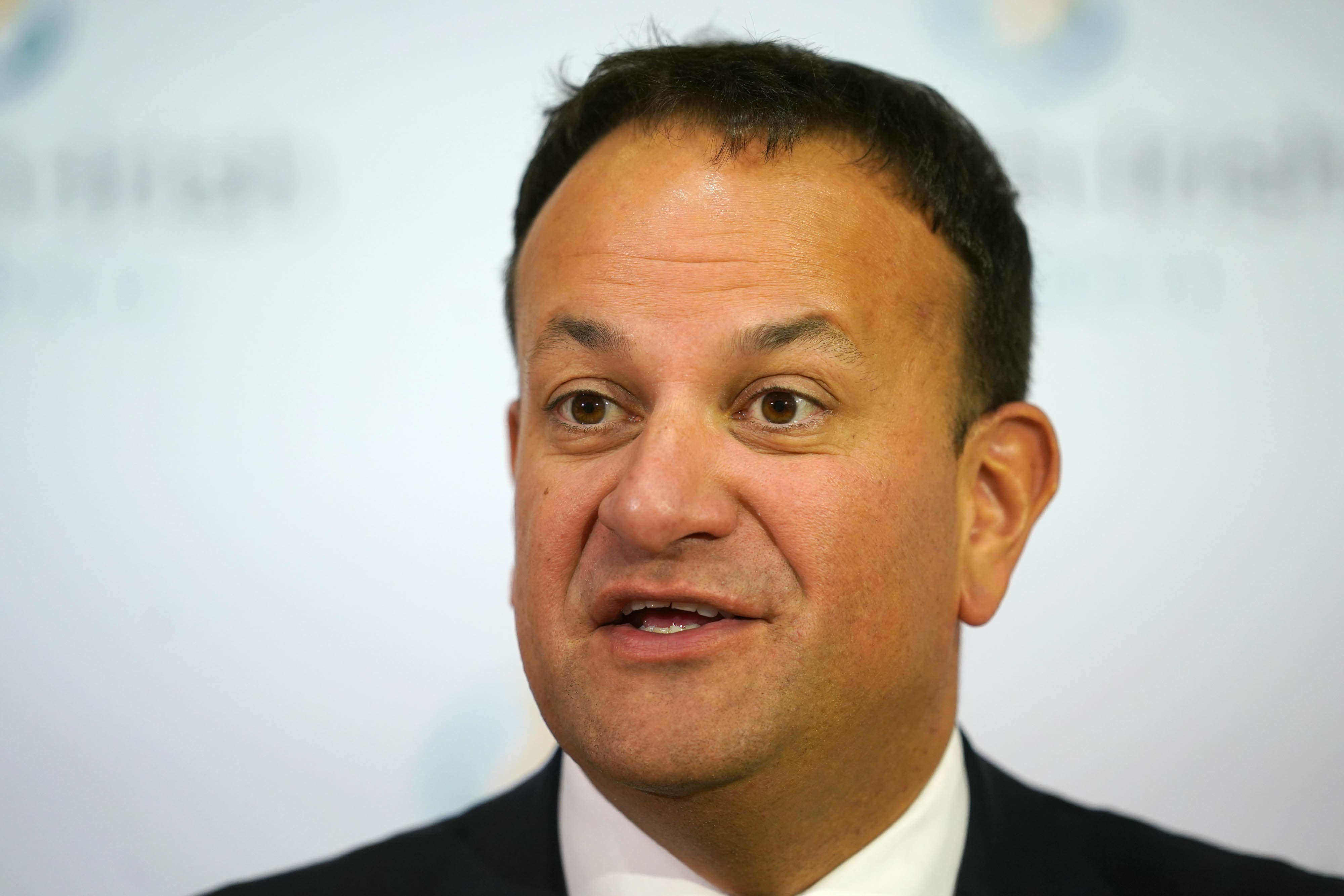Varadkar does not intend to join South African court challenge against Israel
The Taoiseach said was there was a need to be ‘very careful’ on what defined genocide.

Your support helps us to tell the story
From reproductive rights to climate change to Big Tech, The Independent is on the ground when the story is developing. Whether it's investigating the financials of Elon Musk's pro-Trump PAC or producing our latest documentary, 'The A Word', which shines a light on the American women fighting for reproductive rights, we know how important it is to parse out the facts from the messaging.
At such a critical moment in US history, we need reporters on the ground. Your donation allows us to keep sending journalists to speak to both sides of the story.
The Independent is trusted by Americans across the entire political spectrum. And unlike many other quality news outlets, we choose not to lock Americans out of our reporting and analysis with paywalls. We believe quality journalism should be available to everyone, paid for by those who can afford it.
Your support makes all the difference.The Taoiseach has said the Government does not intend to join South Africa’s case against Israel in the International Court of Justice as he warned of the need to be “very careful” about defining genocide.
Sinn Fein has been among those calling for Ireland to join the legal proceedings filed by South Africa accusing the Israelis of committing “genocidal” acts in Gaza.
The case is due to be heard by the ICJ this month.
Asked if Ireland would be joining the case along with South Africa, Mr Varadkar told RTE “we don’t intend to do so”.
He added: “I really think this is an area where we need to be very careful.
“What’s happened in Gaza is appalling, over 20,000 people killed, mostly innocent civilians, mostly women and children, very possibly war crimes committed both by Israel and Hamas when it comes to the events of the last few months.
“Genocide is something very particular. It is defined as an attempt, a deliberate attempt to destroy an entire nation, an entire race or to do so in large part.
“And one group of people that has experienced that in the world are Jewish people, the Holocaust – six million Jews killed here in Europe and Hitler had a plan to kill many millions more – that is genocide.
Hamas went into Israel, killed 1,400 people, took 200 hostages. Killed 1,400 people essentially because they were Israelis, because they were Jews, because they lived in Israel. Was that not also a genocide?
“And, of course, there have been other examples of genocide, such as the Armenian genocide, and what’s happened to some indigenous people, for example, in the new world.
“We need to be very careful about genocide in that context.”
Asked if he thought what was happening in Gaza was genocide, he replied: “I think that’s something that the international court will now determine.
“Bear in mind what Hamas did on October 7, Hamas went into Israel, killed 1,400 people, took 200 hostages. Killed 1,400 people essentially because they were Israelis, because they were Jews, because they lived in Israel. Was that not also a genocide?”
Mr Varadkar also reiterated his desire to formally recognise Palestine as a state.
However, he made clear that Ireland would not be doing so unilaterally, and instead as part of a bloc of like-minded nations in the context of a peace plan for the region.
“I would much prefer to see us recognise the state of Palestine as part of a peacebuilding solution and in concert with a number of other European countries and those discussions are under way,” he said.
“I understand why people would like to see us do it unilaterally. I actually don’t think that would be a successful decision. It would be something that would make us feel better about ourselves, no doubt, and would be denounced in Israel and welcomed in Palestine, but forgotten about within a few days.
“Whereas if we do it as a group of countries, then it has real significance. And what I hope is we can get to a situation in the next few weeks, and I really hope this happens, is a ceasefire in Gaza, an end to the violence and a new Palestinian Authority being put in charge of Gaza.
“I think if we as a group of a number of European countries were then to recognise that new authority as a state that puts them in a much stronger position to talk about long-term negotiations with Israel and a two state solution, and that’s where we want to be.”